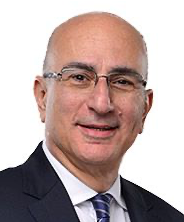
32 Yılda Değişen Hiçbir Şey Yok
1991 yılında bendeniz Hazine’de (o zamanlar Başbakanlığa bağlı bir müsteşarlıktı) müsteşar yardımcısıydım. Türkiye, bugünkü gibi ekonomik sorunlarla boğuşuyordu. Büyüme yüzde 1 (bugün yüzde 5,7), enflasyon yüzde 65 (bugün yüzde 75), bütçe açığı yüzde 5 (bu yıl yüzde 6 dolayında bekleniyor), işsizlik oranı yüzde 8,2 (bugün yüzde 8,5), dış borç toplamı 54 milyar dolardı (bugün 500 milyar dolar.) Cari açık yoktu (bugün yüzde 2,8.) Şimdi karşılaştırdığımda 1991 yılının koşullarının büyüme dışında bugünkünden çok daha iyi olduğunu görebiliyorum. Ekonomi dışı alanlarda ise bugünkü durumumuzla karşılaştırılamayacak kadar iyi durumdaydık. Ama ben o zamanki durumu da beğenmiyor, Türkiye’nin çok daha iyi göstergelere sahip olmaya layık olduğunu düşünüyordum. Sonunda Türkiye İçin Bir Ekonomik İstikrar Programı Önerisi adı altında bir rapor hazırlayıp zamanın Ekonomiden Sorumlu Başbakan Yardımcısı Ekrem Pakdemirli’ye sundum.
Aşağıda bu raporun sonuç bölümü yer alıyor. Okuduğunuzda otuz yıldan uzun sürede ekonomide hiçbir şeyin değişmediğini, hatta daha da bozulduğunu ve yazılanların bugün de geçerli olduğunu göreceksiniz. Raporun sonuç bölümü şöyle:
“Yeni klasik iktisatçıların ortaya koyduğu çok önemli bir gerçek vardır; enflasyon sorunu, para ve maliye politikaları aracılığıyla geçici ayarlamalar yapmakla çözümlenemez. Siyasal iktidarın, devlet giderlerini karşılama şekli, kamuoyunun siyasal iktidara güven duyacağı tarzda değiştirilmek zorundadır. Bir başka deyişle ekonomik istikrar politikasının başarısı siyasal iktidarın kredibilitesiyle yakından ilgilidir. Her şeyden önce kamuoyu, kamu kesimi finansman açıklarının para basarak karşılanmadığını, Merkez Bankasının siyasal iktidardan bağımsız olduğunu görmelidir. İkinci önemli konu, alınan önlemlerin devamlılığının sağlanmasıyla, ya da daha açık bir ifadeyle bu tür sorunların ileride yeniden ortaya çıkmayacağına olan inancın yerleştirilmesiyle ilgilidir. Bunun da yolu bütçe açıklarının düşürülmesindeki devamlılıktan geçmektedir.
Türkiye’nin 1980’ler boyunca gerçekleştirdiği yapısal değişimlere karşın 1994 yılı başında tekrar aynı noktaya gelmesinin nedenleri ekonomik olmaktan çok siyasal nedenlerdir. 1993 yılı boyunca, Hazinenin Merkez Bankasından kullandığı kısa vadeli avansın yüzde 130’dan fazla artmış olmasının, iktidara gelirken en çok bu noktayı eleştirmiş bulunan bir liderin dönemine denk gelmesi, sorunun siyasal bir sorun olduğunun en önemli göstergesi olarak kabul edilebilir.
Yaptığımız bütün açıklama ve değerlendirmeler, Türkiye'de gerek kurumsal düzenlemelerin ve gerekse ekonomi politikasının siyasal kararlılık olmaksızın yürütülemeyeceğini ortaya koymaktadır. Vardığımız en acı sonuç budur. Genelde, bu konulardan bazıları tümüyle teknik çalışmalarla ve son noktaya kadar siyasal iktidarın bilgisine gerek göstermeksizin çözülebilecek konular olduğu halde, Türkiye'de, başlangıçtan itibaren siyasal karara gereksinim gösterir bir şekle dönüşmüştür. Çünkü teknik konuların çoğu siyaset malzemesi haline getirilmiş, uzlaşma zeminleri yok edilmiştir. O nedenle, Türkiye'nin siyasal kadrolarının işi, gelişmiş ülkelerin siyasal kadrolarından çok daha zordur. Zira o siyasal kadrolar, kendi siyaset yetkilerini kısıtlayacak önlemleri kendileri almak; yasama organını, hükümete hesap vermekten çıkarıp tam tersine hesap soran bir organ konumuna getirmek zorundadırlar.”
Not: Aynı raporu, bu kez Hazine Müsteşarı iken, bazı ilâve ve değişikliklerle 1997 yılında zamanın Başbakanına da verdim.
